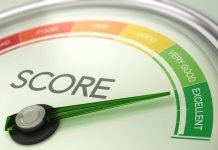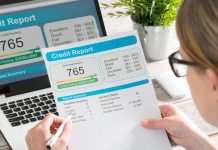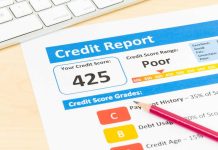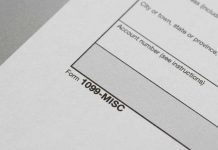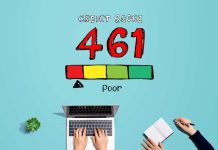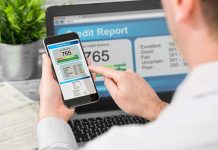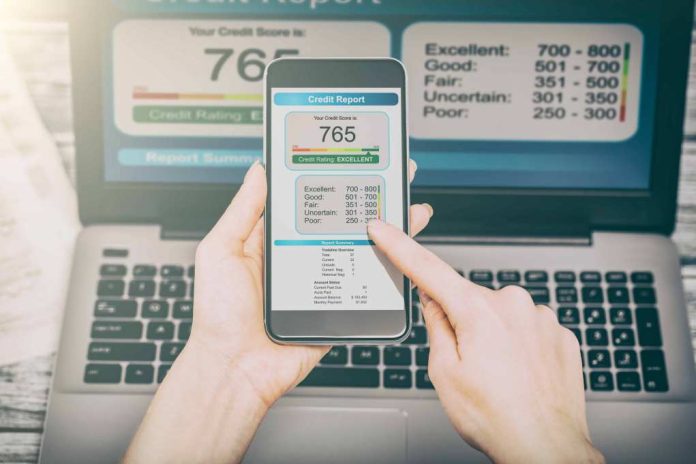
It’s a common misconception that people need a credit card in order to build credit. Even without a credit card, people can still hurt or help their score! If you need to repair your credit but don’t have a credit score, then you’re still in luck. Even if your situation feels hopeless, there may be more options to consider than you realize.
Do You Actually Know What a Credit Score Is?
Before learning about how to build credit, you should first understand what a credit score is. While many people feel like they know what a credit score is, they may not have a clear understanding. Your credit score is a number that generally ranges from 300 to 850. This score doesn’t just come out of thin air. Credit bureaus use information found on your credit report to calculate this score. There are three main credit bureaus which are Experian, Equifax, and Transunion. Your credit report has information about your credit file like your payment history, credit card usage, etc.
When calculating your score, your credit bureaus will use scoring models in order to determine how each item on your report will affect your score. There are two main scoring models! There is the FICO model and the VantageScore model. However, it is important to note that the FICO scoring model is used by 90% of top lenders which makes it the more popular one of the two. Your credit score is used by lenders as a way to better understand how you are as a borrower and how you handle your credit. This allows lenders to determine the risk they face if they lend you money.
What Factors Affect Your Credit?
Since the FICO model is the more popular scoring model that credit bureaus use, that will be our reference for how the factors actually impact your score! There are 5 main factors that affect your credit. These factors are:
- Payment History
- Utilization Ratio
- Credit History
- Hard Pulls
- Credit Variety
Payment History
Your payment history is at the top of the list when it comes to factors that affect your credit score. That’s because it accounts for 35% of it! Your payment history would include information like any late payments, collection accounts, on-time payments, and more. One of the reasons that this score is so impactful is because it easily shows lenders your ability to repay the debts you borrow.
Utilization Ratio
Many people aren’t familiar with their credit utilization ratio. Luckily, it’s easy to understand! Your credit utilization ratio looks at the total credit you are using compared to your overall credit limit. For example, if your overall credit limit is $2,300 and you are currently using $1,265 then your credit utilization ratio is 55%. Your utilization ratio is the second most important factor that affects your credit score. Which means, your utilization ratio accounts for 30% of your score.
Credit History
When people think of their credit history, they may just think about their oldest line of credit. However, this factor actually accounts for the age of your credit whether it’s your old account, your newest account, the average age of your accounts, etc. Your credit history accounts for 15% of your credit score.
Hard Pulls
Hard pulls, also known as hard inquiries, account for 10% of your credit score. While it may not be the most important factor, it is still something to be aware of! When a lender wants to get an in-depth look at your credit file they will need to submit a hard inquiry. Hard inquiries require written authorization from the consumer to provide this access.
Hard inquiries are different from soft inquiries. That’s because soft inquiries do not impact your credit score, while hard inquiries do. Soft inquiries are only meant to help a consumer prequalify!
Credit Variety
When people think of credit, they may not think of different types of credit that go into their score. However, the variety of credit you have is a factor to be mindful of since it accounts for 10% of your score! There are two main types of credit accounts which are installment loans and revolving credit.
Do You Know Your Score?
Now that you understand your credit score and the factors that impact your score, it’s important to make sure you know your score. That way when it comes time to build credit, you know where you’re starting from. You can check your credit score in plenty of different ways! You can:
- Check with your bank
- Use a third party app
Regardless of which way you choose, you can see your credit score standing with no impact on your score. Remember how we said that there were two main scoring models? Well these scoring models will determine the score categories. When looking at the more popular FICO scoring model:
- Exceptional (credit scores that are between 800-850)
- Very Good (credit scores that are between 740-799)
- Good (credit scores that are between 670-739)
- Fair (credit scores that are between 580-669)
- Poor (credit scores that are between 300-579)
However, when looking at the VantageScore model, it’s a bit different. For the VantageScore model:
- Excellent (credit scores that are between 781-850)
- Good (credit scores that are between 661-780)
- Fair (credit scores that are between 601-660)
- Poor (credit scores that are between 500-600)
- Very Poor (credit scores that are between 300-499)
Understanding Different Ways to Build Credit
There are a variety of different ways to build credit. If you are someone without a credit card that wants to build credit then there are more options than you may realize.
How to Build Credit Without a Credit Card
There are plenty of ways you can repair credit without a credit card. You can:
- Become an Authorized User
- Get a Credit Builder Loan
- Consider Passbook or CD Loans
- Try Peer-to-Peer Loans
- Benefit from Federal Student Loans
- Get a Personal or Auto Loan
Become an Authorized User
A popular way that people without a credit card begin working on credit repair is by becoming an authorized user. An authorized user is a person that is added to another person’s credit card account. The primary cardholder is the one that authorizes this user so they can be added. One of the benefits of becoming an authorized user is that there are few limitations around who can and can’t become one. Typically there are age requirements but that’s it!
As long as the cardholder agrees, authorized users can use their credit card to make purchases without technically being responsible for the payments. That’s because the charges go to the primary cardholder’s account. Due to the fact that you could impact the primary cardholder’s credit if you spend your credit however you like, you want to be respectful of their account! That’s because lenders will only look to the primary cardholder for their monthly payment due and not the authorized users.
However, it’s important to note that you want to become an authorized user for a person that you trust. That’s because if they don’t properly manage their credit either then that could impact your score!
Get a Credit Builder Loan
When people that have little (or no) credit history want to work on their credit, they can benefit from this option. That’s because these loans don’t have high credit eligibility requirements in order for consumers to qualify. Instead, they like to make sure that you have enough income to make the payments! Sadly, if you are a person that already has existing debt, then you may not be able to see as much of a benefit compared to someone with no debt that has little (or no) credit history.
With this type of loan, generally you would borrow a small amount that is placed into a savings or CD account. The funds would stay in this account until the loan is repaid. Once the loan is paid off, then you can access the funds from the account. You may even see extra money from interest! When getting these loans consumers can expect to have low interest rates and to place money up front as collateral.
Consider Passbook or CD Loans
Another option that’s similar to a credit builder loan are Passbook or CD loans. These loans are only offered by some financial institutions to existing customers. These loans would use the balance that consumers have in their CD or savings account. They sound very similar to a credit builder loan but the difference is that they use funds that were already saved as collateral. When reviewing your options you can typically expect to see interest rates that are lower compared to unsecured personal loans, credit cards, etc.
Try Peer-to-Peer Loans
Typically when a person thinks of loans, they think of ones that are provided by a financial institution like a bank. However, with Peer-to-Peer (P2P) loans, the loans are actually made by an individual investor (or group of investors). The benefit of these loans is that the interest that gets built up from these loans goes back to the investors. Eligibility requirements vary by lender but typically borrowers may be able to qualify even if they have a lower credit score compared to traditional lender requirements. However, these loans may come with higher fees and interest rate terms. But again, it varies by lender!
Benefit from Federal Student Loans
When people finance their education through federal student loans, they may not realize that they could actually be working on their credit score. Let’s circle back to the factors that impact your score – the variety of credit you have is something that matters! While there is revolving credit like a credit card, there are also installment loans. Education loans (as well as the other loans on this list) are considered installment loans. As you repay your federal student loans, you are working on your credit! That is why it’s important to handle the repayments of these loans responsibly.
Get a Personal or Auto Loan
Again, since loans are a sure fire way to work on credit without a credit card, personal loans and auto loans are something to consider. However, you don’t want to get loans that you don’t need. Auto loans are a type of loan that use the vehicle that the borrower wants to buy as collateral. Once the loan is repaid then the title of the loan is given to the borrower and it rightfully belongs to them.
Personal loans are a bit different from auto loans because they can either be secured or unsecured. When a loan is secured that means it needs something for collateral (like an auto loan uses the car as collateral). However, other personal loans like unsecured loans don’t require any collateral! Sadly, it can be hard to qualify for these if your score isn’t great. However, some lenders have flexibility around their eligibility requirements.
Different Ways to Build Your Credit
Besides becoming an authorized user or getting an installment loan, there are other ways that you can build your credit. You can:
- Get in touch with a Credit Counselor
- DIY Credit Disputes
- Hire a Credit Repair Company
Get in Touch with a Credit Counselor
Credit counselors are people that took the time to get trained and certified in a variety of areas in consumer finance. These counselors work at credit counseling organizations. Credit counseling organizations are typically nonprofit. That means that the services they provide are generally free!
Credit counselors can help people deal with a variety of financial issues like:
- Budgeting
- Consumer Credit
- Debt Management
- Money Management
If you want to build your credit, you can get some advice from these counselors. They can help you better understand your situation and ways to build your credit (regardless of whether or not you have a credit card).
DIY Credit Disputes
Another way that people can work on credit repair is through credit disputes! The dispute process is easy. First, the consumer will need to get a copy of their credit report (luckily they are allowed a free one every year and can get one at AnnualCreditReport.com). Once they get the report, they will need to see if there are any errors on it. Errors would be inaccurate information like accounts that don’t belong to you, accounts that have a different reported balance, etc.
If a consumer can find inaccurate items then they can submit a dispute to one (or all) of the major credit bureaus). When submitting a dispute they will want to include information as to why the item is actually inaccurate and any proof they have. The credit bureaus will then review the dispute, investigate, and respond. Typically they have 30 days to do this but it can be longer than that under special circumstances.
Hire a Credit Repair Company
Another option that people choose is to hire a credit repair company. Credit repair companies are organizations that handle the dispute process for the consumer. That means instead of consumers doing all the work like getting a copy of their credit report, reviewing it for any errors, and submitting a dispute to the credit bureaus, a credit repair company would do this on their behalf.
It is important to note that out of the options on this list, this is the only one that costs money. Even though it is the only one that costs money, they do not provide a special service. They provide a service that consumers can do on their own! Typically a credit repair company can cost between $19 to $149 a month depending on the company and credit repair services you choose.
How to Begin the Credit Building Process Without a Credit Card?
If you don’t have a credit card you will want to understand why you don’t have one. Can you not qualify? Do you not want one? Do you not know how to get one? The reason for you not having a credit card will determine the best way for you to handle the process. For example, let’s say the only reason you don’t have a credit card is because you don’t know how to get one. That means the way that you work on your credit can be different compared to an individual that doesn’t even qualify for a credit card.
Finding this answer will be able to put you in the right direction in terms of what you should do. However, you will want to talk to a professional like a credit counselor, a financial advisor, or even your local personal banker if you need some guidance for your situation.
Frequently Asked Questions
Many people find credit hard to understand. If you are in the same boat, then you are not alone! Others have had questions when learning about credit repair without a credit card, credit in general, and more. You may have some of the same questions too.
Can You Build Credit Without a Credit Card?
Yes you can build credit without a credit card. Let’s circle back to the factors that affect your credit score. Factor #5 was your credit variety. There are two main types of credit which are either installment loans or revolving credit. An example of revolving credit would be a credit card. However, installment loans are completely different from revolving credit. That means you can build credit through loans instead of a credit card!
However, besides getting a loan, there are other ways that you can build credit without a credit card. Another way to build credit would be to become an authorized user on another person’s credit card account. A primary cardholder can grant this access!
Do You Need a Debit Card to Build Credit?
Sometimes, people can confuse credit cards and debit cards (especially since their names sound so similar). However, it is very important that you know this difference! Your credit card is a line of revolving credit. That means your card issuer provides you a credit limit that you can borrow from them and pay back.
However, your debit card is a card that is connected to your checking account. It allows you to access the funds from your account to use. You would be using money in your account compared to a credit card that uses money from the lender. That means your debit card is irrelevant when it comes time to build credit.
What is an Interest Rate?
In life, you will deal with interest rates in one way or another. They can be frustrating since they result in you paying more over the course of your loan! An interest rate is basically a fee that a lender charges the borrower for lending them money. The interest rate is a percentage that is based on the amount of the loan. Generally, the interest rate is measured annually which is why the interest rate is typically referred to as the annual percentage rate (APR).
However, an interest rate can also refer to the amount earned at a financial institution’s savings account. Accounts like a CD account gains interest on the funds that are in the account. Instead of being referred to as an APR this type of interest rate is referred to as the annual percentage yield (APY).
Should You Get a Credit Card?
Maybe! You may be able to benefit if you get a credit card. Even if you just open up a small line of credit that is worth $200, it can help you begin the process of building your score even more! However, you should confirm with a professional to see how you can benefit specifically from using a credit card. Using a credit card even for just small items like gas every week that you repay at the end of the month could help.
What is the Fastest Way to Improve Your Credit?
Sadly, there is no clear cut answer to this since everyone’s situation is different! You may be able to improve your credit with a dispute, by improving your payment history, etc. For advice, you should speak to a professional.
Bottom Line
While it may be confusing to repair credit without a credit card, it doesn’t have to be! That’s because there are plenty of ways that you can work on your credit without having to get a credit card. You can become an authorized user or even get a loan to build up a positive payment history and improve your credit.
However, in order to find what works best for your situation, you will want to get in touch with a professional like a credit counselor, financial advisor, or even your local personal banker. Your situation may not be as hopeless as it feels!
Article References
https://www.investopedia.com/terms/c/credit_score.asp
https://www.credit.com/blog/build-credit-without-a-credit-card/
https://www.experian.com/blogs/ask-experian/what-is-credit-card-authorized-user/
https://www.nerdwallet.com/article/finance/what-is-credit-builder-loan
https://www.annualcreditreport.com/index.action
https://www.experian.com/blogs/ask-experian/how-long-does-it-take-to-complete-the-dispute-process/
https://www.investopedia.com/how-much-does-it-cost-to-repair-my-credit-5077091
https://www.experian.com/blogs/ask-experian/can-you-build-credit-debit-card/
https://www.investopedia.com/terms/i/interestrate.asp



